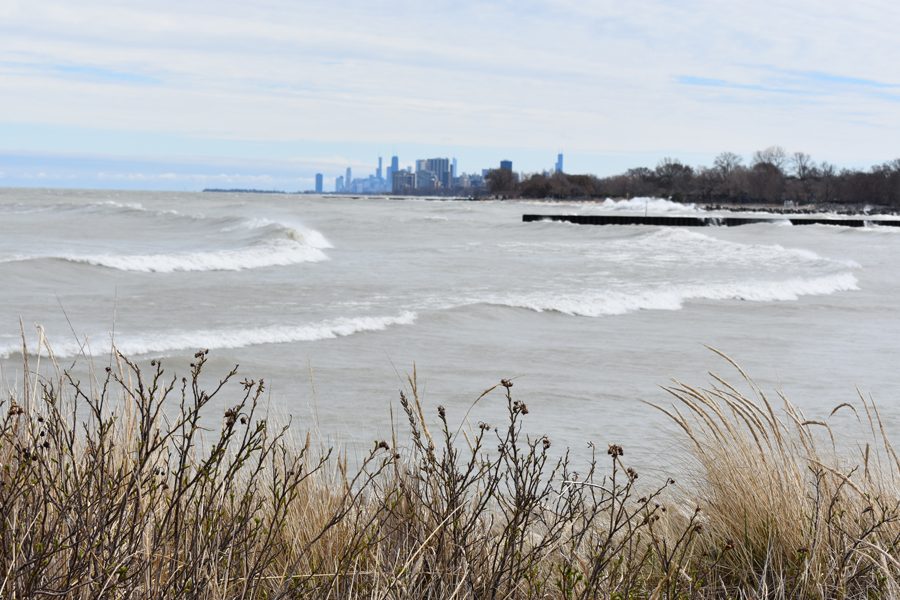Invasive species, extreme weather pose threat to Lake Michigan, report finds
Emma Edmund/Daily Senior Staffer
Lake Michigan. Both extreme weather events and invasive species pose a risk to Lake Michigan and the surrounding Chicago area.
April 21, 2019
Lake Michigan is experiencing negative environmental harm that could worsen with climate change, according to scientists.
In a recent report by the Environmental Law and Policy Center, a team of 18 scientists and experts outlined the negative environmental effects caused by climate change in the entire Great Lakes region. Issues of invasive species and extreme weather events pose particular threats to Lake Michigan and the Chicago area.
Lake Michigan serves both recreational and economic needs of local residents. In Evanston, the Parks, Recreation & Community Services Department operates five beaches, manages a boat launch and hosts aquatic camps and other lake activities.
Lawrence Hemingway, the director of the department, said that while the city spends anywhere between approximately $850,000 to $900,000 annually operating the lakefront, it generates approximately $1 million in revenue.
“The lake is a recreational asset for our community,” Hemingway said.
As a whole, tourism generates $16 billion for the Great Lakes region and regional fisheries generate $7 billion, according to the report. In Lake Michigan, however, boats associated with these industries and others have introduced invasive species as they move between bodies of water, according to Steven Pothoven, a fishery biologist from the National Oceanic and Atmospheric Administration’s Great Lakes Environmental Research Laboratory.
Lake Michigan’s most prevalent invasive species — the zebra and quagga mussels — take energy out of the base of the lake’s food web by eating all of the lake’s algae, cutting off energy flow to much of the rest of the lake’s species. While the government can take preventative steps to keep such species out of the lake, Pothoven said there’s not much the region can do to stop invasive species once they’ve arrived.
“Usually once they’re in, you’ve let the cat out of the bag,” Pothoven said. “There’s research about ways mussels can be controlled, but that takes a really long time.”
The range for invasive species could increase as the area around Lake Michigan warms with climate change. For Aaron Packman, a Northwestern professor and contributor to the Great Lakes report, another one of the biggest environmental impacts on cities in the Great Lakes are extreme weather events, which are also projected to increase with climate change.
Packman said the flooding associated with increased precipitation is highly disruptive to the cities near the Great Lakes, including Chicago. In the summer, heat waves pose a potentially life-threatening risk to vulnerable populations.
Both Pothoven and Packman said there are steps individuals can take to help the lake. While Pothoven said legislative action is needed for wide scale prevention of invasive species, individuals can be cognizant of not releasing fish from their personal aquariums into the lake or transporting plants or animals attached to their boats as they move between bodies of water.
Packman also said individual action can be useful combined with ongoing investment in infrastructure to combat the effects of climate change.
“The best thing that each of us can do is change our own behavior in ways that contribute to sustainability and resilience and reduced impact,” Packman said. “A lot of issues are driven by consumer demand, so if you make choices that are typically healthier for you, that are broadly lower-impact, lower-resources, that has a benefit everywhere.”
Email: emmaedmund2022@u.northwestern.edu
Twitter: @emmaeedmund
Related Stories:
– Report warns of climate change-related impacts on Great Lakes
– Evanston proposes two-year climate action plan implementation strategy



